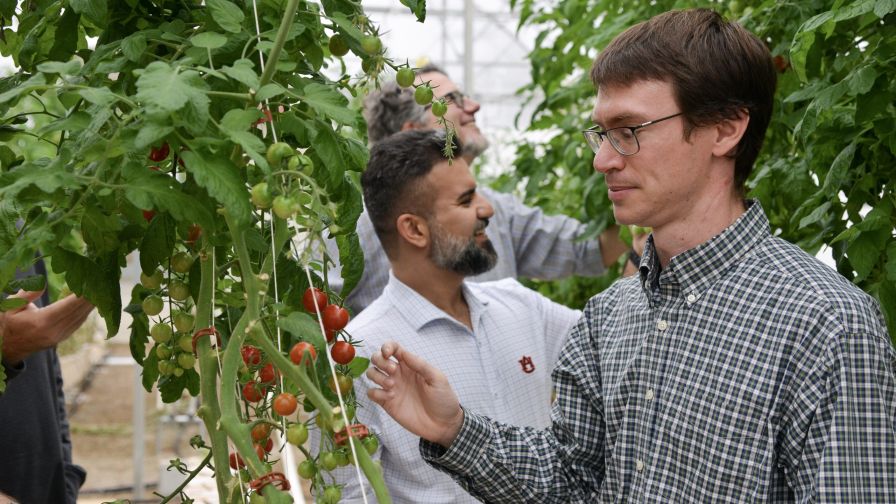Researchers reimagine controlled environment agriculture
Biosystems Engineering
By Paul Hollis

While controlled environment agriculture (CEA) has the potential to improve access to local, nutritious fruits and vegetables on a year-round basis, the greenhouse gas emissions associated with greenhouse production is five times higher than field-grown produce.
For this reason, researchers at Auburn University are embarking on a wide-ranging and ambitious mission to reimagine CEA as a more sustainable approach to food production.
The project, entitled “Reimagining Controlled Environment in a Low-Carbon World,” is the focus of a $9.95 million grant recently awarded to Auburn by the U.S. Department of Agriculture’s National Institute of Food and Agriculture’s Sustainable Agriculture Systems program.
“CEA must be reimagined to become a sustainable approach to food production,” said Brendan Higgins, associate professor in the Department of Biosystems Engineering and project director. “Our team’s long-term goal is to transform CEA strategically, managerially, technologically and socially to position it as a viable food production system capable of producing sufficient and nutritious foods within the low-carbon economy.”
The Auburn research team will engage in research, extension and educational activities that align with four over-arching strategies to lower the carbon intensity of CEA: reduce demand for heating and cooling in CEA; improve efficiency of CEA climate control; lower the carbon intensity of resource inputs; and shift consumer and producer behavior surrounding CEA products and practices.
Researchers

